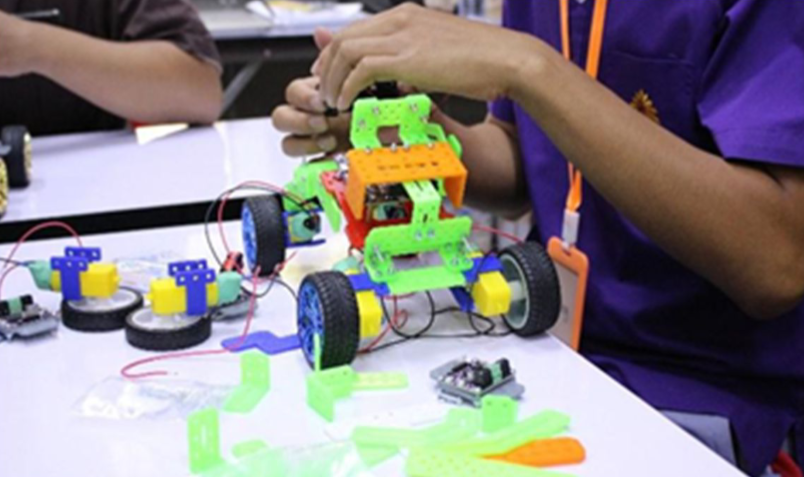A Study Using the Low-Cost Robot Kit as a Tool to Promote Students’ Engagement in STEM Education
Main Article Content
บทคัดย่อ
Learning as part of the engineering design process. In an engineering education context, robots are employed to motivate and transfer the problematic concepts of interdisciplinary integration. Most existing educational robotics have been developed to teach programming and basic robotics in many countries. However, a market survey found that many brands of robots tend to be expensive and inflexible for use by students in upper-middle-income countries. Therefore, we have designed and built a modular educational robot kit called entitled the MEC-Ed robot kit designed to be a low-cost resource for student learning as part of the engineering design process. We used a robotics design performance score and engagement questionnaire to collect quantitative data in the experimental case study. The participants in this experiment were 29 senior high school students in Thailand. The authors found that the framework supports the engineering design process and enhances the students’ positive perceptions concerning low-cost robot kits.
Article Details
เอกสารอ้างอิง
Abidin, Z., Arifudin, R., Hardyanto, W., Akhlis, I., Umer, R., & Kurniawan, N. (2021, June). Low-cost educational robotics for promoting STEM education. In Journal of Physics: Conference Series, 1918(4), p. 042018. IOP Publishing.
Alimisis, D. (2019). Teacher Training in Educational Robotics: The ROBOESL Project Paradigm. Tech Know Learn 24, 279–290. https://doi-org.ejournal.mahidol.ac.th/10.1007/s10758-018-9357-0
Al Khatib, E. I., Jaradat, M. A. K., & Abdel-Hafez, M. F. (2020). Low-cost reduced navigation system for mobile robot in indoor/outdoor environments. IEEE Access, 8, 25014-25026.
Angeli, C., & Valanides, N. (2020). Developing young children's computational thinking with educational robotics: An interaction effect between gender and scaffolding strategy. Computers in Human Behavior, 105, 105954.
Anwar, S., Bascou, N. A., Menekse, M., & Kardgar, A. (2019). A systematic review of studies on educational robotics. Journal of Pre-College Engineering Education Research (J-PEER), 9(2), 2.
Arís, N., & Orcos, L. (2019). Educational robotics in the stage of secondary education: Empirical study on motivation and STEM skills. Education Sciences, 9(2), 73. https://doi.org/10.3390/educsci9020073.
Ardito, G., Czerkawski, B., & Scollins, L. (2020). Learning computational thinking together: Effects of gender differences in collaborative middle school robotics program. TechTrends, 64(3), 373-387.
Arık, M., & Topçu, M. S. (2020). Implementation of engineering design process in the K-12 science classrooms:
Trends and issues. Research in Science Education, 1-23. https://doi.org/10.1007/s11165-019-09912-x.
Atman, C. J., Adams, R. S., Cardella, M. E., Turns, J., Mosborg, S., & Saleem, J. (2007). Engineering design processes: A comparison of students and expert practitioners. Journal of engineering education, 96(4), 359-379. https://doi.org/10.1002/j.2168-9830.2007.tb00945.x


